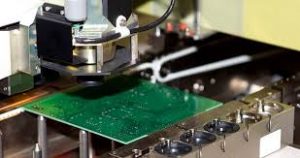How Does Selective Conformal Coating Enhance the Reliability of PCBs?
Coating Enhance the Reliability of PCBs
The electronics we use in our daily lives range from the mundane like controlling a thermostat or deploying airbags to potentially life saving devices that monitor and react to environmental conditions such as icy roads or hazardous materials. The sensitivity and durability of these devices require a high level of reliability. Conformal coating can protect PCBs from damage and increase their longevity by creating an additional barrier between the board components and the surrounding environment. There are a variety of applications and industries where conformal coating is used including consumer electronics, automotive, aerospace, and medical devices.
There are a number of different conformal coatings on the market with differing levels of performance, price, and curing speed. Some are formulated to meet specific industry requirements. The most common is acrylic coating, which can be applied by spraying and offers good mist, dust and humidity protection. Acrylic is relatively cheap and can be cured using UV light, resulting in a quick turnaround. Other conformal coatings include hybrid coatings that blend properties from resin into the coating process, allowing for the same high performance as more expensive alternatives, but at a more affordable price.
Selective conformal coating can be applied manually or by machine, depending on production throughput requirements and the type of equipment available. Manual spraying is a cost-effective solution for low volume production, but it can lead to variations in coating thickness across boards and requires careful masking around connectors and other solvent sensitive parts. Automated spraying uses programmed spray systems to move the coating applicator over the circuit board and dispense the correct amount of coat at the correct velocity. It is highly efficient for production runs and can be particularly effective for high-reliability mission critical products.

How Does Selective Conformal Coating Enhance the Reliability of PCBs?
All conformal coatings must be tested to ensure their integrity and that they provide the desired level of protection. Testing includes environmental tests such as thermal cycle and shock, which expose the board to gradual changes in temperature, and humidity/bias which test the resistance of the coating against changes in moisture.
The choice of conformal coating can significantly impact the reliability of a printed circuit board assembly. By choosing a coating that is right for the application and by following the recommendations above, you can be confident that your board will be protected against the elements and be able to perform as intended. If you have any questions about the application of conformal coating to your PCB, please get in touch. Our team is happy to assist you.
Waste management is a critical component of environmentally responsible PCB assembly. Printed circuit board manufacturing generates various types of waste, including scrap PCBs, solder dross, and chemical residues. Proper handling and disposal of these wastes are essential to prevent pollution and minimize environmental impact. Recycling programs for materials like copper, solder, and plastics can help reduce the need for virgin resources and lower overall waste generation.
Water usage and pollution are also concerns in PCB assembly processes, particularly in cleaning and rinsing stages. Implementing closed-loop water systems and using environmentally friendly cleaning agents can mitigate water consumption and contamination risks. Additionally, wastewater treatment processes can help remove contaminants before discharge, ensuring compliance with environmental regulations and minimizing harm to aquatic ecosystems.

